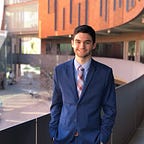The Plague: For the bane and the enlightening of men
In Albert Camus’ 1947 novel The Plague, Camus tells the story of a doctor and a handful of allies as they watch the rapidly spreading deadly illness take hold across the town and themselves.
Throughout the novel the town’s doctor, Rieux, comes to realize that the fate of an individual patient was less and less of interest, and the focus became on the collective destiny of the town.
For those without friends or family currently infected, this is the same realization we have come to. By following the numbers of cases and how various governments and their people respond to the crisis, we have become onlookers of our collective destiny.
While in the novel little was understood about the disease, and seemingly futile procedures were made which usually extended the inevitable at best, Rieux was able to not just learn more about the disease, but about man itself.
“We might try to explain the phenomenon of the plague, but, above all, should learn what it had to teach us”
Throughout the experiences in the novel, one of the men who decided to help the doctor had begun his time determined to escape the locked-down city and return to the woman he loved. Months later after being on the front lines of handling the plague, “He knew that was out of the question now; he had changed too greatly.”
While extreme, Camus presents a rather important point; things that were once important to us may no longer dictate our lives; as we now have a different understanding given distance from our previous daily routines and a new view of our priorities.
What aspects of our lives will we not return to? As this man had little choice on the effects the plague would have on his life due to the events put in front of him, we have the opportunity to place our attention on the bad habits or unfulfilling obligations of our prior lives that we may not be able to currently partake in, and see how we can solidify their cessation as we approach whatever normalcy may look like in the future.
After the plague receded and the city reopened, Rieux reflected:
“Perhaps the day would come when, for the bane and the enlightening of men, it would rouse up its rats again and send them forth to die in a happy city”.
The current perspective change we have been granted to awaken to a better understanding of ourselves and the world we live in can be seen as an enlightening, just as Camus mused from his fictional scenario.
This is not the easy perspective to take, though.
David Foster Wallace shares this idea in his famous This Is Water speech; that each day we can go through the world and see the negatives, and that each setback and nuisance is happening to us. But it takes a strength of mind and discipline to not fall into these traps and to see these events as happening for us as they give us the chance to practice perspective and to derive meaning from experience.
After watching many suffer and die from the plague, Rieux was able to distance himself from the immediate tragedies and see what was to be gained from the ordeal. Not only in reflection but amid the event he began noticing what both he and society was learning. While we are living through a tragic event, it would be a missed opportunity to not take this time to find what benefits are being seen both internally and as a whole.
Previously masked views are now able to be enjoyed due to a decrease in pollution, joys from our past can be rediscovered, and we need not find a grand location or experience to enjoy our time.
So in the face of an uncomfortable experience, are we able to do the work to learn what the experience has to teach us, and see it as enlightening? Or will we speculate on the cause, point fingers at political leaders who could have acted differently, and share photos of those who aren’t following best practices?
Although the current pandemic may be a bane for many, it is also enlightening us; teaching us about ourselves and society. By being cognizant of these lessons as they take place and having the discipline to see it happening for us, rather than to us, we will be better able to reap the benefits in the future, just as Camus presented in his work over half a century ago.
